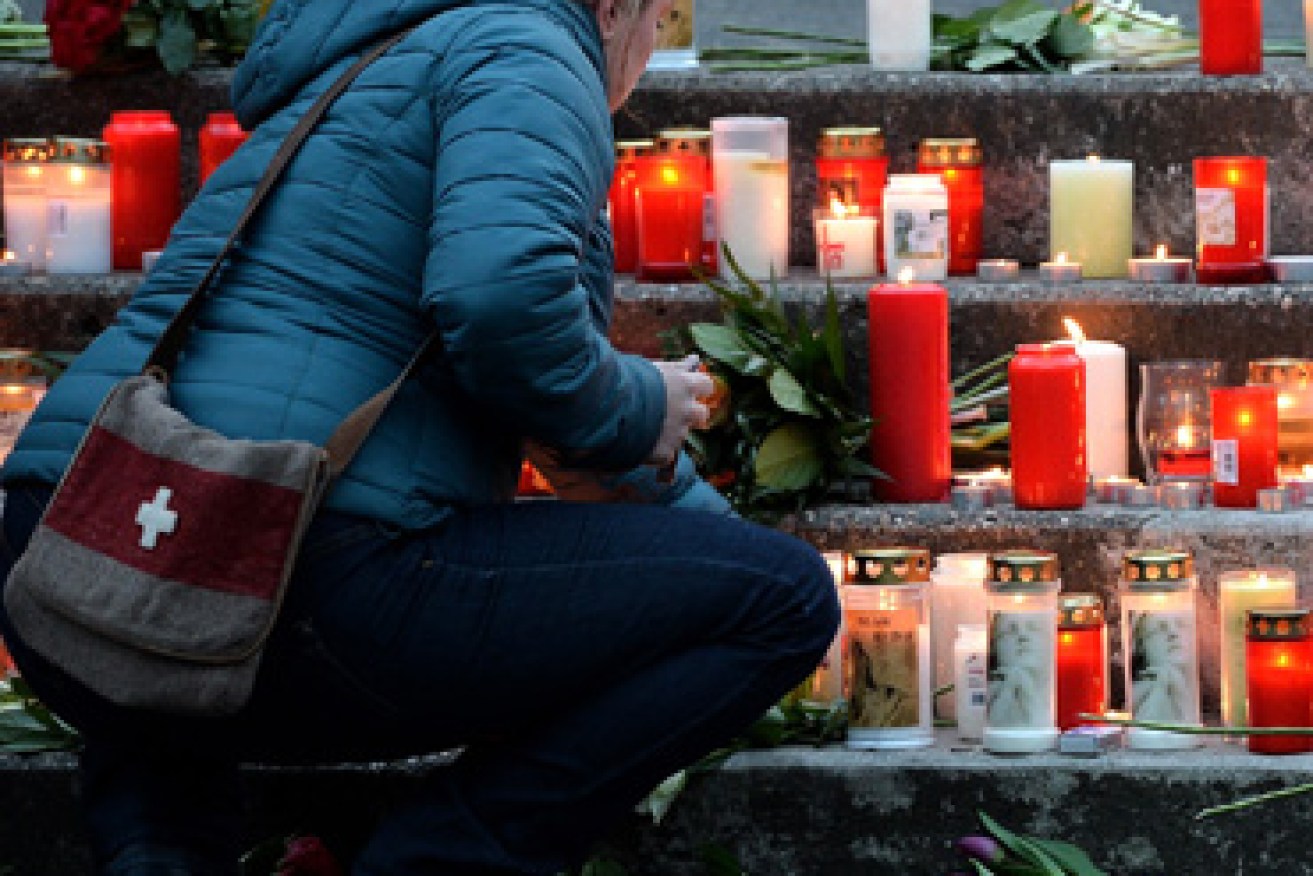Flying is safe and becoming safer, but passengers on budget airlines may be taking slightly higher risks, warns an air crash investigator.
On Tuesday evening, a lower-cost flight run by Germany’s Lufthansa crashed in a remote southern region of the French Alps, killing all 150 passengers and crew, including two Australians, and raising yet more questions about aviation safety.
• Tragic end to family holiday
• Jetstar, Tigerair warned about A320 fault: report
• Germanwings cockpit voice recorder found
• Flight change saves footballers
The budget flight plunged for eight minutes without making a distress call before crashing near the ski resort of Barcelonnette, French officials have reported.

The crash site is so remote, recovery crews are struggling to gain access. Photo: Getty
Until this tragedy, Germanwings (a budget subsidiary of Lufthansa) had an impeccable safety record, with zero fatalities since it was founded in 2002.
Central Queensland University associate professor Geoff Dell told The New Daily he would be “not fussed” about flying on a local budget airline, but would be wary of low-cost operators overseas, especially those in the African continent.
The most plane crashes occurred in Africa – 6.83 crashes per million flights – between 2009 and 2013, the International Air Transport Association (IATA) has reported.
Over the same period, the former Soviet Union had the second-most crashes (2.74 per million), followed by the Middle East and North Africa (1.82 crashes per million).
In Europe, where Germanwings is based, crashes were only 0.24 per million.
“You don’t want to upset our neighbours too much, but it’s just a function of resourcing,” said Dr Dell, who has worked in numerous roles as an air safety expert in his 30-plus year career.
Fatality-free airlines similar, but safety margins may differ

As mourners gather, questions about aviation safety are being asked yet again. Photo: Getty
Crash data does not seem to indicate that second-tier operators are more dangerous.
In fact, the number of budget airlines that were fatality-free in the past 10 years is comparable to full service airlines.
In the past decade, approximately 85 per cent of the world’s full service airlines did not experience a fatal crash, compared to approximately 92 per cent of budget airlines that were fatality-free, data from the Airline Ratings website reveals (not including regional airlines).
But the danger is that while both kinds of airlines comply with safety standards, the bigger operators give themselves more of a buffer zone, Dr Dell said.
“While everybody is allegedly operating to the same standards that regulatory agencies impose, there’s definitely a difference between minimum compliance and best practice,” he said.
“It’s fair to say that the budget airlines achieve minimum compliance … and they won’t go beyond that.
“It pushes the price of fares down, so the general public win, but it’s a balancing act between that and how close do you push to wring the maximum out of it.”
For 20 years, prominent Danish academic Professor Eric Hollnagel has theorised that managers in all kinds of organisations, not just airlines, reward teams that operate closest to the absolute limit of margins such as safety.
This factor is at play in the low budget airlines, Dr Dell said.
A320s are safe
Dr Dell does not have any serious concerns about the safety of the A320 itself – the model of aircraft that crashed in the French Alps.
Computer technologies in new craft like these prevent more accidents than the models designed and built in the 1960s, but do have their own unique problems – what Dr Dell calls “gremlins in the code”.
Despite these infrequent tech glitches, new planes crash less frequently than their predecessors, meaning that flying is safer and becoming more so.









